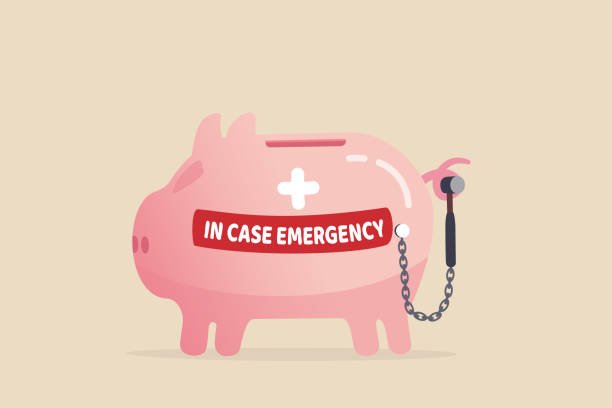1. Towards financial planning
Financial planning is a boon to every difficult life, helping you manage your wealth. It is a perfect strategy that looks at your income, expenses, savings, investments, future goals. Financial planning can help you understand your current financial situation, as well as create a road map to achieve your future goals. Its purpose is to make the best use of your resources and achieve financial stability and security in the future.
It is important that everyone understand their financial situation and plan financially, whether they are students, employees or retirees. Financial planning helps you in every aspect of your life. It also prepares you for emergencies and helps you plan your investments for future goals, such as your children’s education, retirement plans, etc.
2. Benefits of Financial Planning

are for financial planning that gives you long-term financial stability and peace of mind. The first and foremost benefit is that it helps you achieve your goals. Whether your goal is to educate your child, save for your retirement, or buy a home, financial planning gives you a structured approach to your goals.
Second, financial planning prepares you for emergencies. Emergencies may come up in life, but if your financial planning is solid, you can face the situation head on. You can build your emergency fund which can come in handy in any emergency situation.
3. Financial Planning Methodology: First steps in planning
Before embarking on financial planning, there are some good things to keep in mind. The first step is to identify your financial goals. These goals can be short-term or long-term. You have to see what you want to achieve in the next 1 year, 5 years, 10 years or 20 years. Everyone’s goals are different, so it’s important to clearly define your goals.
The second step is to assess your current financial situation. This means looking at your income, expenses, debt, and savings to understand where you stand. You should know how much your monthly income is, how much you spend and how much you have in savings. Will the assessment help you understand where you need to start in your financial planning?
4. Setting financial goals

The first and foremost step in financial planning is to set your financial goals. These goals can be short-term, medium-term, and long-term. Short term goals are what you want to achieve in the next 1 year or 2 years. Names might include managing your day-to-day expenses, building an emergency fund, or saving for something small.
Mid-term goals are what you want to achieve in the next 3 to 5 years. So you can plan for your big purchase, like buying a new car or saving for your higher education. You may want to set these goals according to your current financial situation.
5. Budgeting and tracking expenses
A budget is an essential part of banana financial planning. With a budget you can manage your income and expenses effectively. The first step in creating a budget is to note your monthly income. Then note down your monthly expenses. Names include rent, utilities, groceries, transportation, and other expenses.
When you note your expenses, you can see where you are saving. You can increase your savings to try to eliminate your unnecessary expenses. Then note down your savings and decide how you want to invest the savings.
6. Create Emergency fund

An emergency fund is an important part of financial planning that provides you with financial security in unexpected situations. An emergency fund is money you have for unexpected expenses, such as medical emergencies, car repairs, or when you lose a job. The purpose of the fund is that you don’t have to disturb your regular budget at such a time
An emergency fund is easy as bananas but it requires patience and consistency. By putting a small portion of your income into the fund every month, you can gradually accumulate a substantial amount. In general, financial experts recommend that you put 3 to 6 months worth of expenses into your emergency fund.
7. Explore investment options.
Investments are an important part of financial planning. Investments help you grow money and play an important role in achieving your future goals. There are investment options that can be chosen according to your risk appetite and financial goals.
A popular investment option is stocks. In stocks, you buy a share of a company, and when the US company’s value rises, so does your stock’s value. Stocks are high-risk, high-reward investments, but if you invest with proper research, you can get good returns.
8. Retirement Planning
Retirement planning is a very good part of financial planning. This is necessary to provide you with financial security and stability after your retirement. The goal of retirement planning is to save and invest during your active earning years to maintain your lifestyle after your retirement.
The first step in doing retirement planning is to estimate how much income you will need after your retirement. Does it include your daily expenses, medical expenses, and other lifestyle expenses? Then you have to look at what your current savings and investments are and what they want to support you in retirement.
9. Importance of Insurance
Insurance is an essential part of financial planning that provides financial security to you and your family in unexpected situations. There are different types of insurance that play an important role in your financial planning. Does it include life insurance, health insurance, and property insurance?
Life insurance is a financial safety net for your family if you die. This insurance provides your family with a lump sum that helps them meet their daily expenses, education, and other financial needs. There are different life insurance plans such as term life insurance and whole life insurance, you want to choose the one according to your need.
10. Debt Management
Debt management is an important part of financial planning. If you have loans, it is important to manage them effectively so that you can achieve your financial goals. Debt management is important because if your debt is not under control, it will affect your financial planning and savings.
The first step in debt management is to make a list of all your debts. In the list you have to note what debts you have, their interest rates and how much you have to pay back. This will help you understand your debts and you will know which ones should be paid off first.
11. Tax Planning
Tax planning is an essential part of financial planning that helps you manage your tax liabilities effectively. With tax planning you can minimize your taxes according to your income and get the most out of your investments and savings.
The first step to mastering tax planning is to understand your tax obligations. Do you need to know how much tax you have to pay on what income and what tax deductions are available to you? This will help you understand your tax obligations and do them effectively.
12. Method of budgeting
A budget is an important part of banana financial planning that helps you manage your income and expenses effectively. A budget helps you understand how you are using your income and how you should manage your expenses to achieve your financial goals.
The first step in creating a budget is to calculate your total income. Does it include your salary, bonus, and other sources of income? This will help you figure out your total monthly income.
13. Hiring a Financial Advisor
If you are having difficulty in financial planning or need professional help to manage your finances effectively, you can hire a financial advisor. A financial advisor is a trained professional who helps you manage your finances effectively.
A financial advisor advises you on various financial aspects such as investments, retirement planning, tax planning, and insurance. It understands your financial goals and creates a customized financial plan for you that helps you achieve your goals.
14. Setting long-term financial goals
Setting long-term financial goals is an important part of financial planning that helps you prepare for your future. Long-term financial goals help you manage your finances effectively and provide you with financial stability and security for your future.
The first step in setting long-term financial goals is to assess your future needs and wants. Does it include goals like your retirement planning, children’s education, and dream home purchase? It will help you prepare for your future.
15. Review financial planning regularly.
Review financial planning regularly to ensure you can effectively achieve your financial goals. Financial planning is a dynamic process that changes over time, so it is important to review it regularly.
The first step in evaluating financial planning is to assess your current financial situation. Do I include your income, expenses, savings, investments, and debt? This will help you figure out your current financial position and help you understand what changes you need to make in your financial planning.
Conclusion
Financial planning is an essential process that helps you achieve your financial goals. In this article we have discussed various aspects of financial planning such as budgeting, saving, investing, tax planning, retirement planning, insurance, and debt management.
To do financial planning effectively, you need to define your financial goals and make a detailed plan to achieve them. Does the plan effectively manage your income, expenses, savings, investments, and debts?


